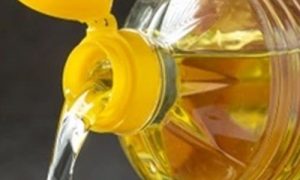Global brands join drive for deforestation-free palm oil in Indonesia’s Aceh

Nestlé, PepsiCo, Unilever, and others formed the Aceh Sustainable Palm Oil Working Group to promote deforestation-free palm oil. Coordinated by IDH, it supports Aceh’s 2024 roadmap to boost smallholder productivity, protect forests, restore degraded lands, and ensure compliance with EU rules, safeguarding both livelihoods and critical ecosystems like Leuser.
Some of the world’s leading consumer brands have formed a partnership to promote deforestation-free palm oil in the Indonesian province of Aceh, Mongabay reported.
Some of the world’s leading consumer brands have formed a partnership to promote deforestation-free palm oil in the Indonesian province of Aceh, Mongabay reported.
The companies, including Swiss conglomerate Nestlé, US food and drink giant PepsiCo and consumer goods major Unilever, joined together to launch the Aceh Sustainable Palm Oil Working Group (ASPOWG), the 22 August report said.
Founding members of ASPOWG – coordinated by Dutch-based non-profit organisation IDH – also included Apical, Mars Wrigley, Mondelēz, Musim Mas, Permata Group and PT SMART Tbk (Golden Agri-Resources).
Located on the island of Sumatra, Aceh is home to the Leuser Ecosystem and other critical habitats.
Although deforestation in the province fell after a peak in 2009, it has been on the rise again since 2021, according to the Mongabay report.
Between 2020-2024, the province lost 41,834ha of forest, more than half of it inside the Leuser Ecosystem, according to data from the monitoring platform Nusantara Atlas, run by technology consultancy TheTreeMap.
The first province-level initiative of its kind in Indonesia, the working group was “a much-needed, long-overdue step towards halting the devastating effects of palm oil expansion in this vital region”, US-based campaign group Rainforest Action Network (RAN) forest policy director Gemma Tillack was quoted as saying.
Although some of the brands involved had previously faced criticism for sourcing so-called “conflict palm oil” from Aceh, particularly from the Leuser region, they had also piloted district-level sustainability projects in recent years, such as PepsiCo’s smallholder programme in Aceh Tamiang district, and Nestlé’s partnership in Subulussalam municipality with Musim Mas and AAK, Mongabay wrote.
These projects supported certification and training for independent smallholders, including preparation for compliance with the European Union Deforestation Regulation (EUDR), which was set to ban EU imports of seven commodities linked to deforestation, including palm oil, from the end of this year.
“As a forest landscape, Aceh runs the risk of being excluded from the global deforestation-free palm oil market without a clear commitment to deforestation-free palm oil,” IDH’s country director for Indonesia Nassat Idris told Mongabay.
“With 52% of production run by smallholders, exclusion of Aceh from the green market will adversely impact not only incomes but also forest protection.”
The working group’s aim was to accelerate implementation of a 2024 regulation issued by the Aceh provincial government, which set out a long-term road map for sustainable palm oil in the province, Mongabay wrote.
The road map called for an improvement to smallholder productivity, a reduction in deforestation risks, protection of high conservation value and high carbon stock forests through designated “no-go areas,” the restoration of degraded lands, the facilitation of conflict resolution and the safeguarding of community rights, the report said.
Members of the working group have agreed to support and accelerate the implementation of the road map and contribute to an action plan, Mongabay wrote.
To Read more about Edible Oil News continue reading Agriinsite.com
Source : OFI
















